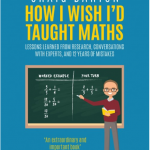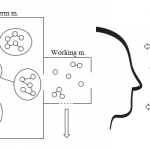Jun17
Evidence-Based Education: The Story of Craig Barton

Evidence-based education Do you suppose these beliefs are based on research results? Do you think they have some scientific foundation? The best lessons have little teacher-talk and lots of student-talk. Where possible, students should ‘discover’ things for themselves. We can teach problem-solving. Effective differentiation means giving students different work to do. The maths we teach […]
Continue reading »












